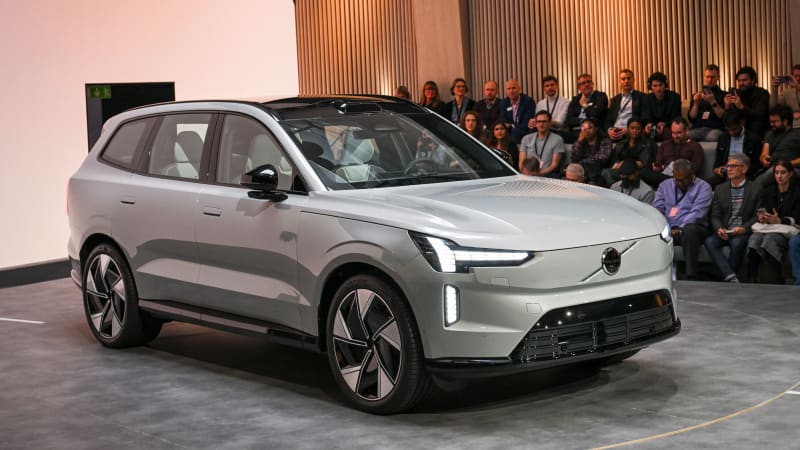Volvo Cars' promise of EV boom falls on deaf ears as shares drop 12%

STOCKHOLM — Shares of automaker Volvo Cars fell as much as 12% on Thursday as its chief executive’s promise of improved margins on battery electric vehicles (EVs) stood in stark contrast to warnings from peers.
As the company reported third-quarter earnings, Chief Executive Jim Rowan told Reuters that he saw healthy demand for its cars, and was optimistic the margins would increase further in the fourth quarter.
“I expect to see us increase our BEV margins as we go into the fourth quarter, and that is because prices of raw material are coming down,” he said, adding that a strong order book had enabled the company to keep its premium pricing.
The remarks ran counter to comments by luxury vehicle rival Mercedes-Benz, which warned of a “brutal” EV market of heavy price cuts and supply chain issues, with margins on its BEVs, or battery electric vehicles, ending lower than expected.
Other companies, such as General Motors, Ford, Tesla and Volkswagen had also warned that the demand for EVs was not developing as expected.
Volvo’s BEV margins were 9% in the quarter, a sharp increase from the previous quarter’s figure of 3%.
Rowan said he expected the trend of falling prices of raw materials to continue, helping the company increase margins further for the fourth quarter.
Investors proved unconvinced, as Volvo shares, down 10% by 1014 GMT, after having fallen as much as 12%, looked set for their biggest ever one-day drop.
The general market viewed EVs as underperforming, said Jefferies analyst Philippe Houchois.
“That would put a question mark around (Volvo’s) growth if they want to push more into EVs just at a time when the market is concerned that EV demand is slowing,” Houchois added.
Volvo’s earnings before interest and tax (EBIT) came to 4.5 billion Swedish crowns ($402.75 million) in the third quarter, missing consensus by more than 10%, according to Handelsbanken.
EV makers have engaged in stiff competition this year, after Tesla ignited a price war intensified by new Chinese players.
Volvo, majority-owned by China’s Geely Holding, has repeatedly said that it would steer clear of a price war, a position Rowan repeated on Thursday.
“We don’t play in the mass market, which is good,” he added.




